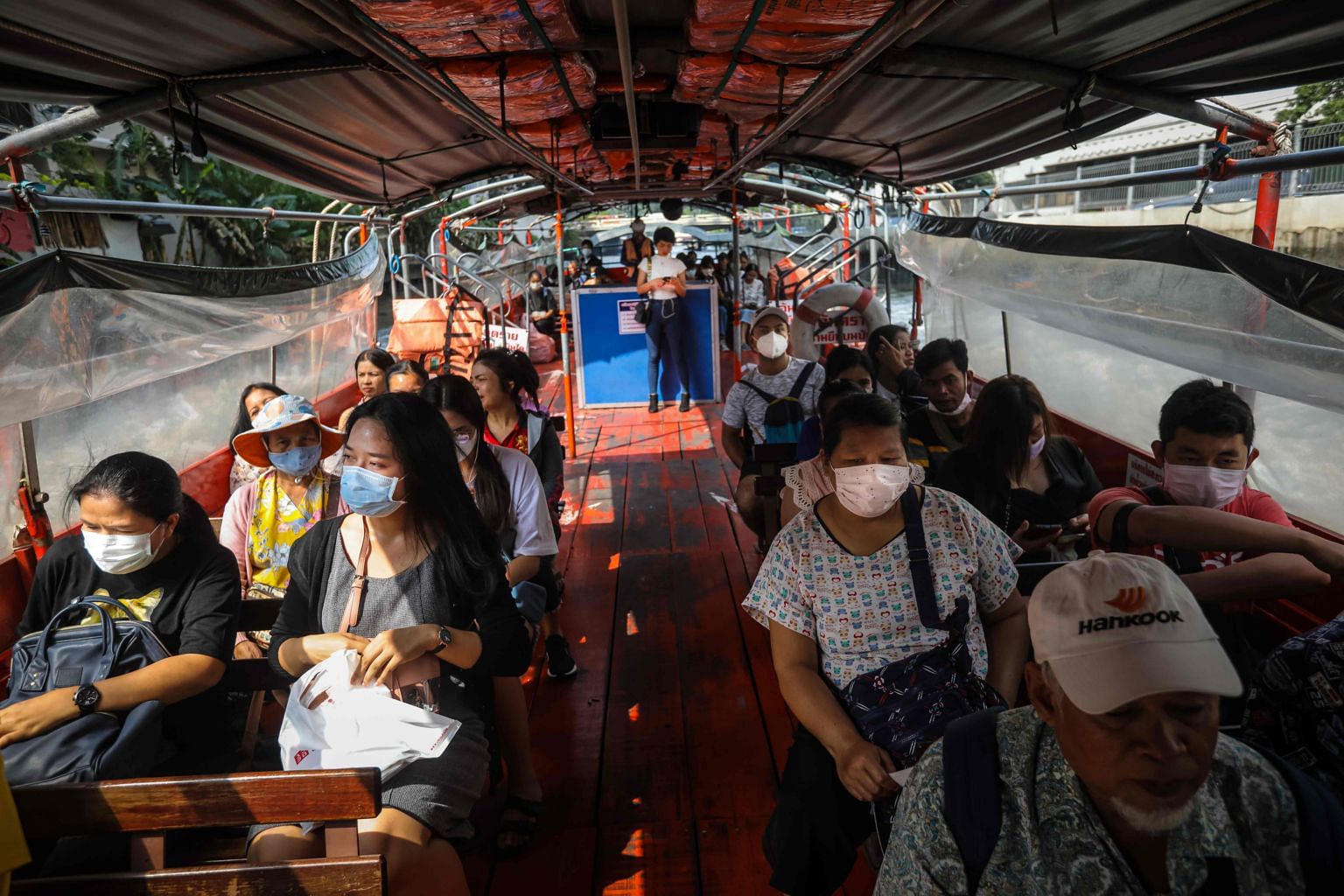Coronavirus: Thai tourism and economy take a big hit from outbreak in Wuhan
Sign up now: Get ST's newsletters delivered to your inbox

Passengers wearing protective face masks sit on a commuter ferry boat on the San Saeb Canal in Bangkok on Feb 5, 2020.
PHOTO: AFP
Hathai Techakitteranun
Follow topic:
BANGKOK - This is supposed to be the top tourist season in Thailand, with beaches and major tourist attractions packed with visitors, especially those from China who make up the largest single group of foreign tourists to the kingdom, South-east Asia's second-largest economy.
But many such places are now half-empty or almost empty after China decided to suspend tours abroad on Jan 27 in the light of the worsening coronavirus outbreak. Up to 492 people have been killed by the virus which originated in the central Chinese city of Wuhan. Almost all the deaths have occurred in China.
"I'm about to lose my job. We have to wrap up this season now. The Chinese tours are done," said Haranyawat Saengprasit, a manager and guide at a speedboat tour company in the southern province of Phang Nga which caters exclusively to Chinese tourists.
"There are other things I can do though. I might open a food stall or a second-hand clothes shop. But it's the people working under me that I'm worried about," said the 39-year-old whose company is expected to shut its operations in the province in a few days, leaving some 40 workers jobless.
The tourism season in Thailand typically ends in May and resumes in October.
Many other tourist operators are also shutting down in the wake of the virus outbreak.
For All Star Cruise, a cruise company in Pattaya, a beach town two hours' drive from Bangkok, the indefinite closure since Feb 1 was as much about the lack of customers as health concerns.
"If we set sail at this rate, we will be running at a loss. It's just not worth it," said Ms Suthasinee Srimala, an executive in charge of selling All Star tickets. More than two-thirds or 70 per cent of 300 tickets are bought each day by Chinese tourists.
"More importantly, we're concerned about our staff's exposure to the virus. Better be safe than sorry," she added.
Some 11 million Chinese visited Thailand last year out of the total tourist arrivals of 39.8 million. Almost a million visitors from China came to Thailand in January alone. Thai Immigration says more than 800,000 left Thailand as of Feb 2 and over 1,300 Chinese nationals from Wuhan remain in the kingdom.
Tourist operators are not the only ones bearing the brunt of the dearth of Chinese tourists.
"Today, I only got 2,000 baht (S$90) from sales, the lowest it has ever been," said Ms Pakaiwan Suksompong, a women clothes shop owner at Platinum mall in downtown Bangkok, which is usually packed with Chinese shoppers. She typically earns 10,000 baht a day.
"I'll need to talk to the mall management soon if they can reduce the rent next month. If not, I might really have to close the shop. Maybe I'll just sell surgical masks instead," added the 32-year-old.
Tourism and Sports Minister Pipat Ratchakitprakan estimated that the overall economic loss would be 300 billion baht for the first half of the year, providing the outbreak is contained by March and the economy recovers by July.
On Tuesday, the Thai Cabinet approved a series of temporary assistance measures for affected businesses but some tourist operators dismissed them as "too little, too late".
"The measures aren't the right answer when those shutting down are not given immediate help," said Mr Wasan Jittmonkong, the general manager of Century Park hotel in Bangkok whose bookings have dropped by 25 per cent compared with the same period last year.
"The government also needs to do more to encourage domestic tourism and look for new markets," he added.

